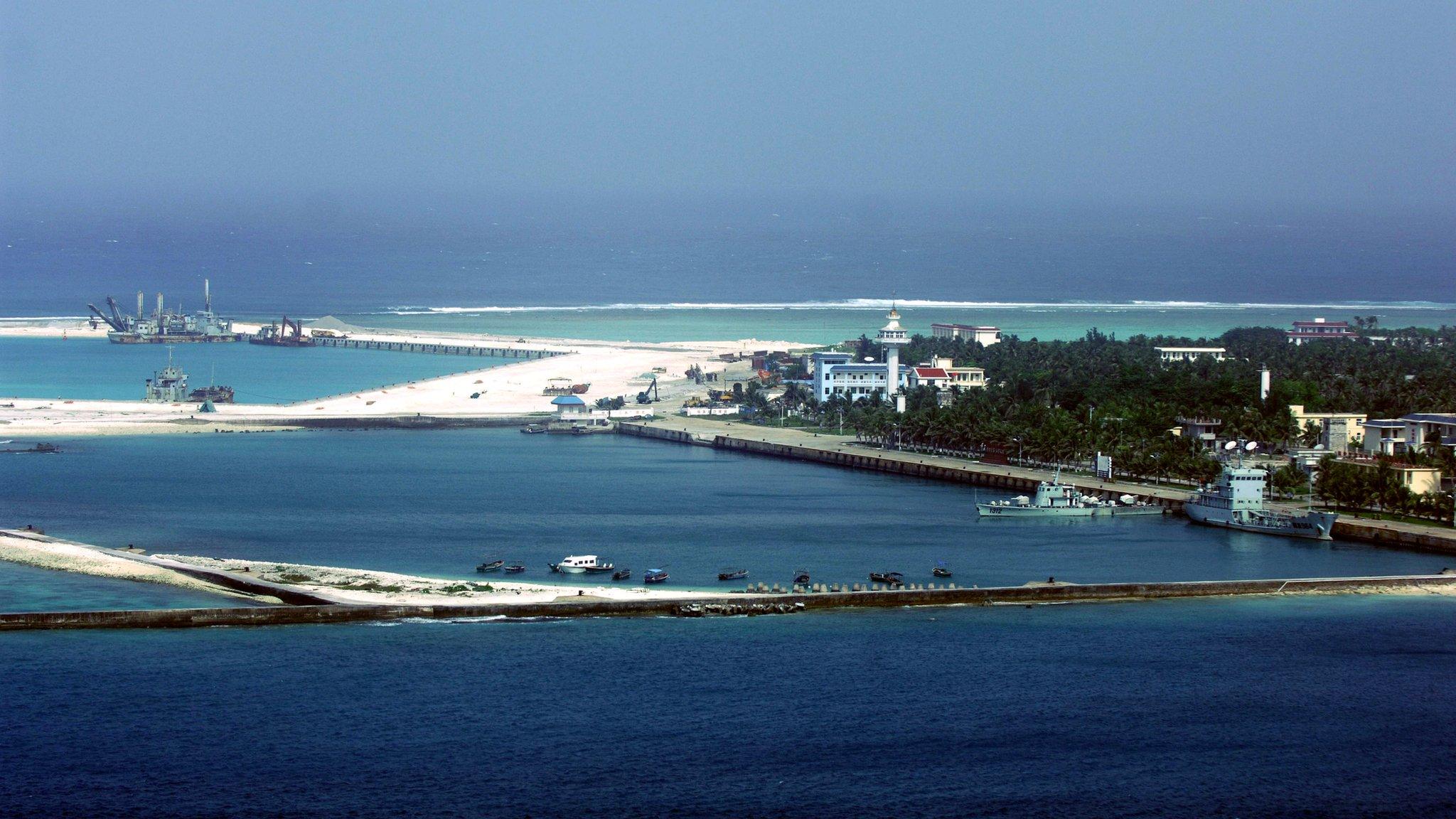China-Vietnam tensions: Beijing vows to continue drilling
- Published
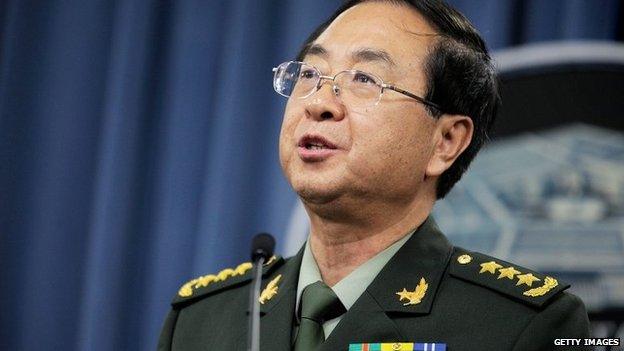
Gen Fang urged the US not to take sides in the Beijing-Hanoi dispute
China says its oil rig will continue drilling in contested waters in the South China Sea, despite deadly anti-Beijing riots in Vietnam.
Top General Fang Fenghui said Beijing could not "afford to lose an inch" of territory, blaming Hanoi for stirring up trouble in the region.
Speaking in the US, he also warned that America's efforts to increase its focus on Asia were fuelling tensions.
A Chinese worker died in an attack on a steel mill in Vietnam on Wednesday.
Almost 150 other people were injured as protesters targeted the Taiwanese mill in the central Ha Tinh province.
Footage has emerged of a collision between a Chinese coastguard vessel and a Vietnamese ship in the South China Sea
On Tuesday, at least 15 foreign-owned factories were set on fire at industrial parks in Binh Duong province, and hundreds more attacked. No casualties were reported.
The protests have been triggered by China's decision to move its Haiyang Shiyou 981 oil rig into waters west of the disputed Paracel Islands earlier this month.
This triggered confrontations between Vietnamese and Chinese ships as Hanoi sought to block the move.
Nationalist sentiment is currently running very high in Vietnam over the issue, correspondents say.
'Provocative steps'
Gen Fang's comments came as he visited Washington.
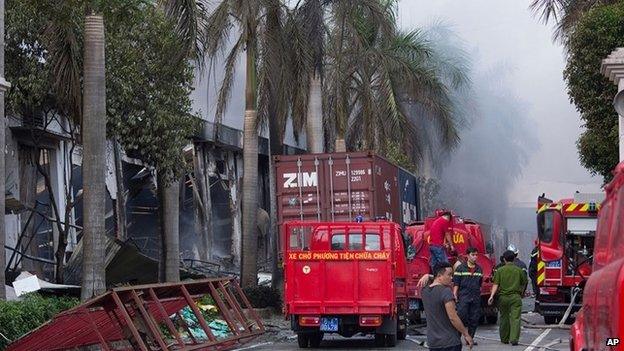
At least 15 foreign-owned factories were set on fire in two industrial parks in Vietnam on Tuesday
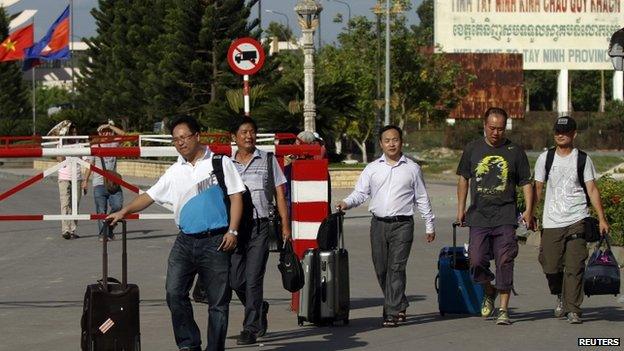
Hundreds of Chinese nationals are reported to have left Vietnam in recent days
"It's quite clear... who is conducting normal activity and who is disrupting it," the People's Liberation Army's chief of general staff said.
He also said some nations in the region had seized upon US President Barack Obama's so-called pivot to Asia to stir up trouble.
Gen Fang urged the US not to take sides in China's escalating dispute with Vietnam.
US Vice-President Joe Biden, however, expressed "serious concern" over the Chinese rig move.
"No nation should take provocative steps to advance claims over disputed areas in a manner that undermines peace and stability in the region," a statement from his office quoted him as telling Gen Fang.
Chinese Foreign Minister Wang Yi earlier condemned the violence in an urgent call with Vietnam's Deputy Prime Minister Pham Binh Minh, according to China's Xinhua news agency.
Mr Wang also called on Hanoi to take measures to ensure the safety of the lives and property of Chinese nationals and firms in Vietnam.
A delegation of Chinese officials has been sent to Vietnam for talks.
Reports suggest many Chinese workers have left, with hundreds crossing the border into Cambodia.
During Tuesday's protest, protesters appeared to have targeted businesses with Chinese characters in their signs, even if they were from places such as Taiwan.
Wednesday's protest happened at a huge steel mill owned by Taiwan's Formosa Plastics. Local officials said one Chinese man was killed and 149 people injured as protesters targeted and attacked Chinese workers and damaged facilities.

Vietnam-China tensions
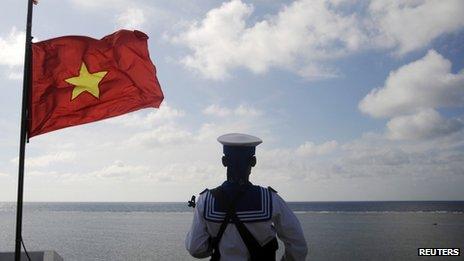
1954-1975: Communist China backs North Vietnam during the Vietnam war
1974: China and South Vietnam fight a bloody war over the Paracel Islands; China seizes Vietnam-controlled islands.
1975: Vietnam war ends, Vietnam-China relations deteriorate over Hanoi's ties with Russia and Beijing's support for the Khmer Rouge
1979: China and Vietnam fight a border war; thousands of troops die
1988: Two sides fight over the Spratly Islands; about 60 Vietnamese sailors killed
1991: Sino-Vietnamese ties normalised; trade expands
2011: Tensions mount with China over South China Sea exploration; US-Vietnam rapprochement gathers pace

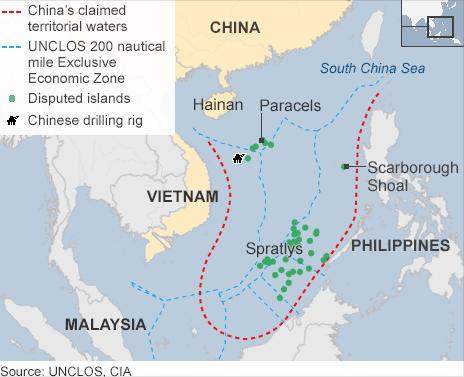
In an emergency letter to the police ministry, Prime Minister Nguyen Tan Dung called the protests against the "illegal oil rig" a "legitimate action".
But he said those who broke the law should be punished and foreign business activities protected.
China claims a U-shaped swathe of the South China Sea, including several areas that its South East Asian neighbours say belong to them.
In recent years it has started to enforce these claims more assertively, leading to severely strained ties with the Philippines and Vietnam in particular.
On Friday Chinese state media said Hanoi and Manila "still cherish the illusion that China can simply be forced back by pressure", but said they needed to learn to "treat China as a major power".
"The South China Sea disputes should be settled in a peaceful manner, but that doesn't mean China can't resort to non-peaceful measures in the face of provocation from Vietnam and the Philippines," an editorial in state-run Global Times said, external.
- Published16 May 2014
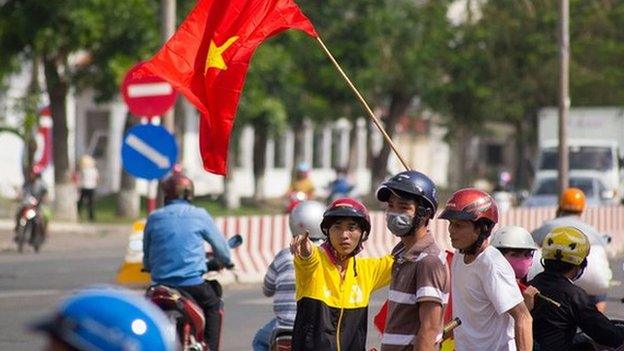
- Published16 July 2014
- Published16 May 2014
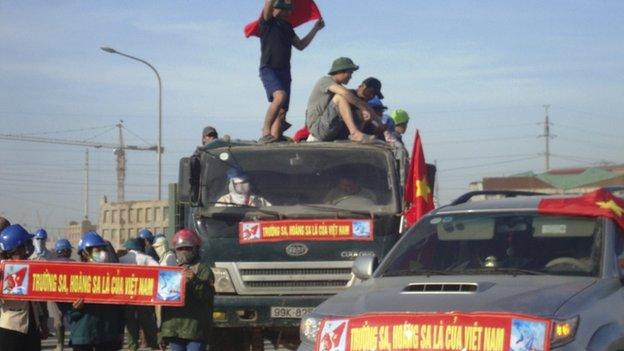
- Published7 July 2023
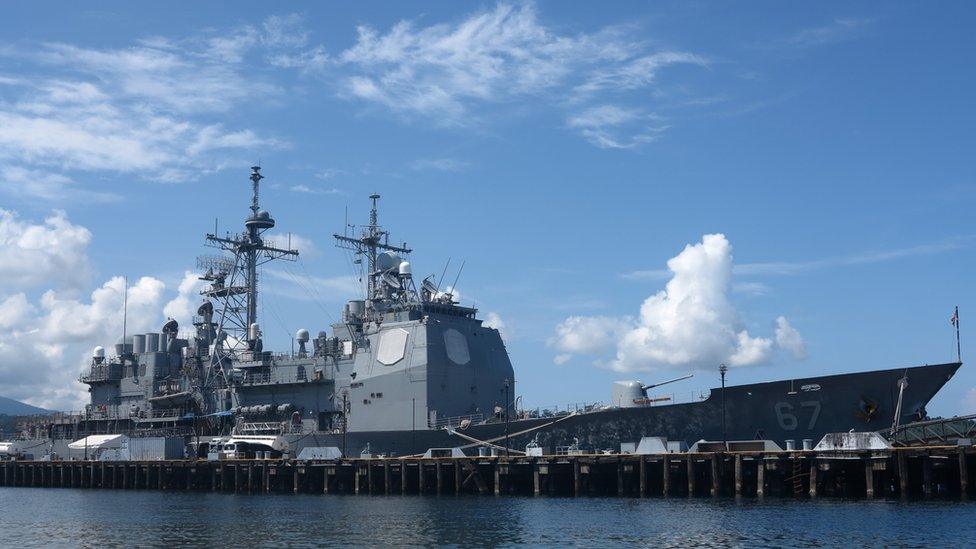
- Published8 May 2014
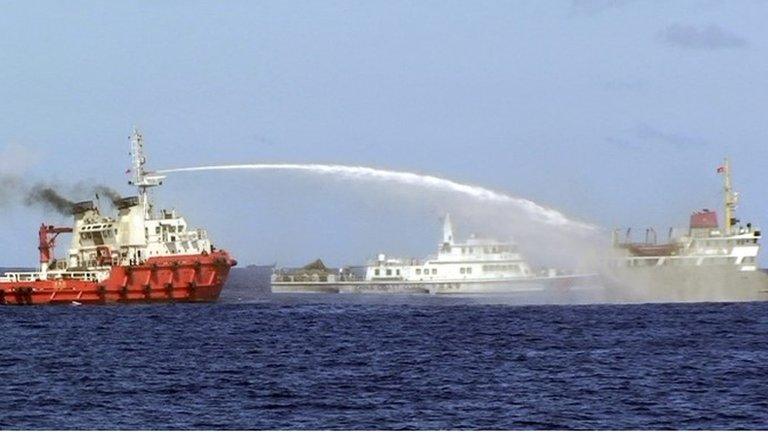
- Published15 January 2014
